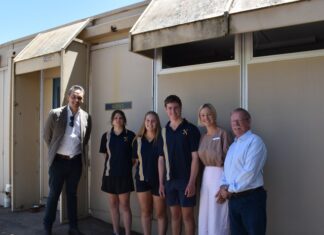The announcement of formal plans to ban live export by sea by May 2028 has been met with strong criticism from the livestock industry.
Livestock SA condemned the Australian Government’s transition package to phase out live sheep exports by sea by May 1, 2028, with president Joe Keynes stating the policy had been ill-conceived from the start, and the paltry transition package announced was likely to shock livestock producers across South Australia.
“Shutting down an important sheep market that leads the world in animal welfare and provides much needed flexibility during challenging times such as drought and industry adjustment, is nonsensical,” he said.
“Continuing to press ahead with this ill-informed policy while ignoring the fundamental reforms the industry has made and its contemporary practices, tells every agricultural industry that continual improvement doesn’t matter.”
Minister for Agriculture, the Hon Murray Watt announced a $107 million Federal transition support package for the Australian sheep industry earlier this month, stating while the live sheep export industry has been in decline for many years, down from $415m in 2002-03 to $77m in 2022-23, the demand for processed sheep meat here and overseas has been rapidly expanding. He claims this presents an opportunity for more processing to occur onshore in Western Australia, which will mean more local jobs.
“This is a comprehensive package that will assist to strengthen supply chains, develop market opportunities and improve animal welfare,” Minister Watt said.
“With the Australian sheepmeat sector booming, our sheep industry has a bright future. This support will help it continue to grow, creating more local jobs through increased value adding. Importantly, it will be available to help all parts of the sheep industry supply chain, from farmers, to truckies, to shearers and processors. We are putting support on the table now so that people can start planning and acting now.”
Mr Keynes was less than enthusiastic, however, stating “the chasm between the rhetoric of valuing agriculture and wanting to see our industry prosper and the reality of what we continue to see from this government continues to widen.”
“Knowing the long-term detrimental impacts the decision will have on the sheep industry and the regional communities that depend on it, to announce a measly package of just $107 million over 5 years for producers and the industry to adjust, demonstrates complete disregard for what is an awful situation,” Mr Keynes said.
The Livestock SA president was also critical of the consultation process with the industry.
“It has been disingenuous and prioritised ideology over facts, evidence, international relationships, economics and now sheep producers and communities,” he said.
“We remain very concerned about the future of the sheep industry in WA and the collateral damage that could be experienced here in South Australia.
“The government needs to start genuinely working with the sheep industry on its next steps, and stop being driven by very selective activist agendas from people who have nothing to lose.”








